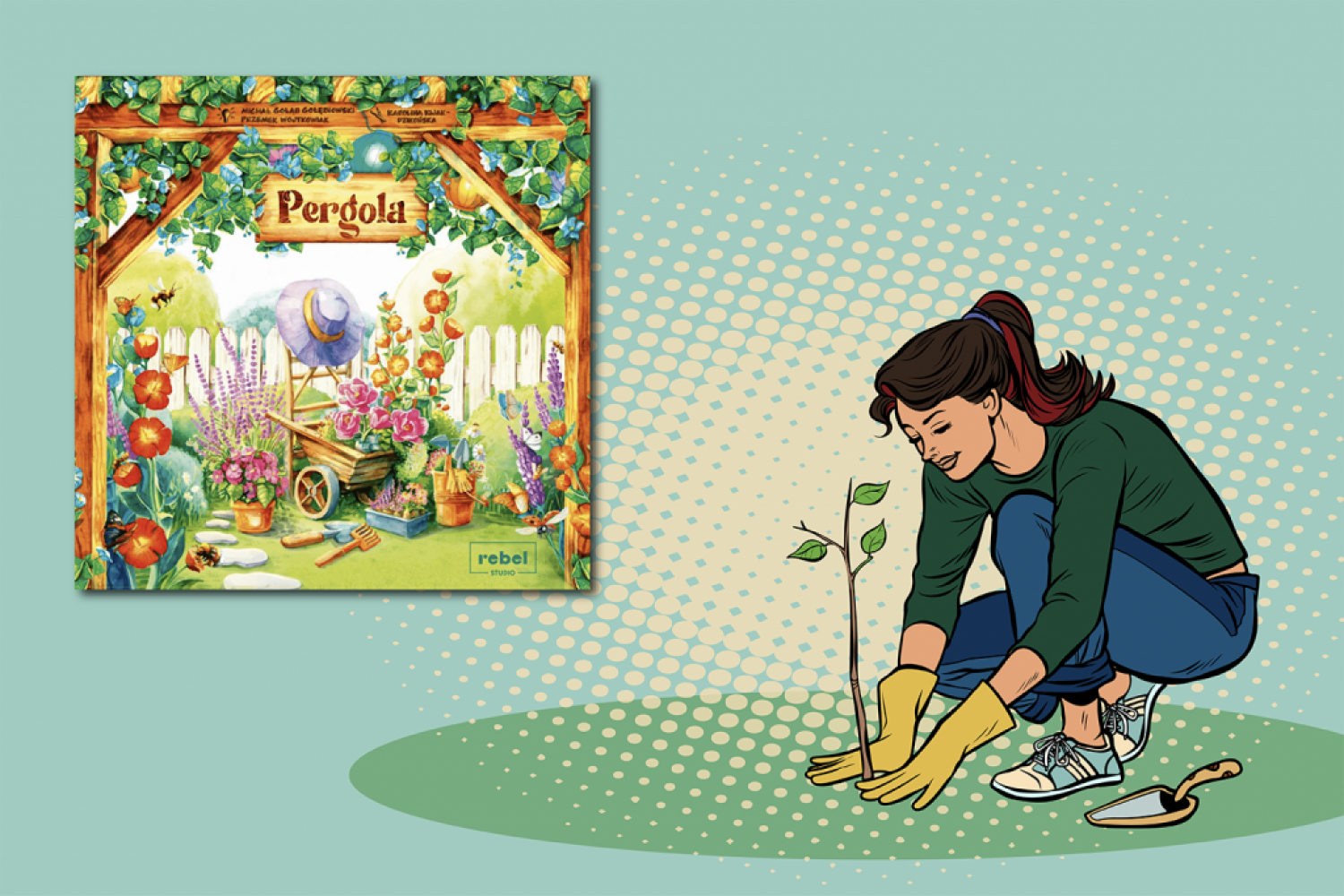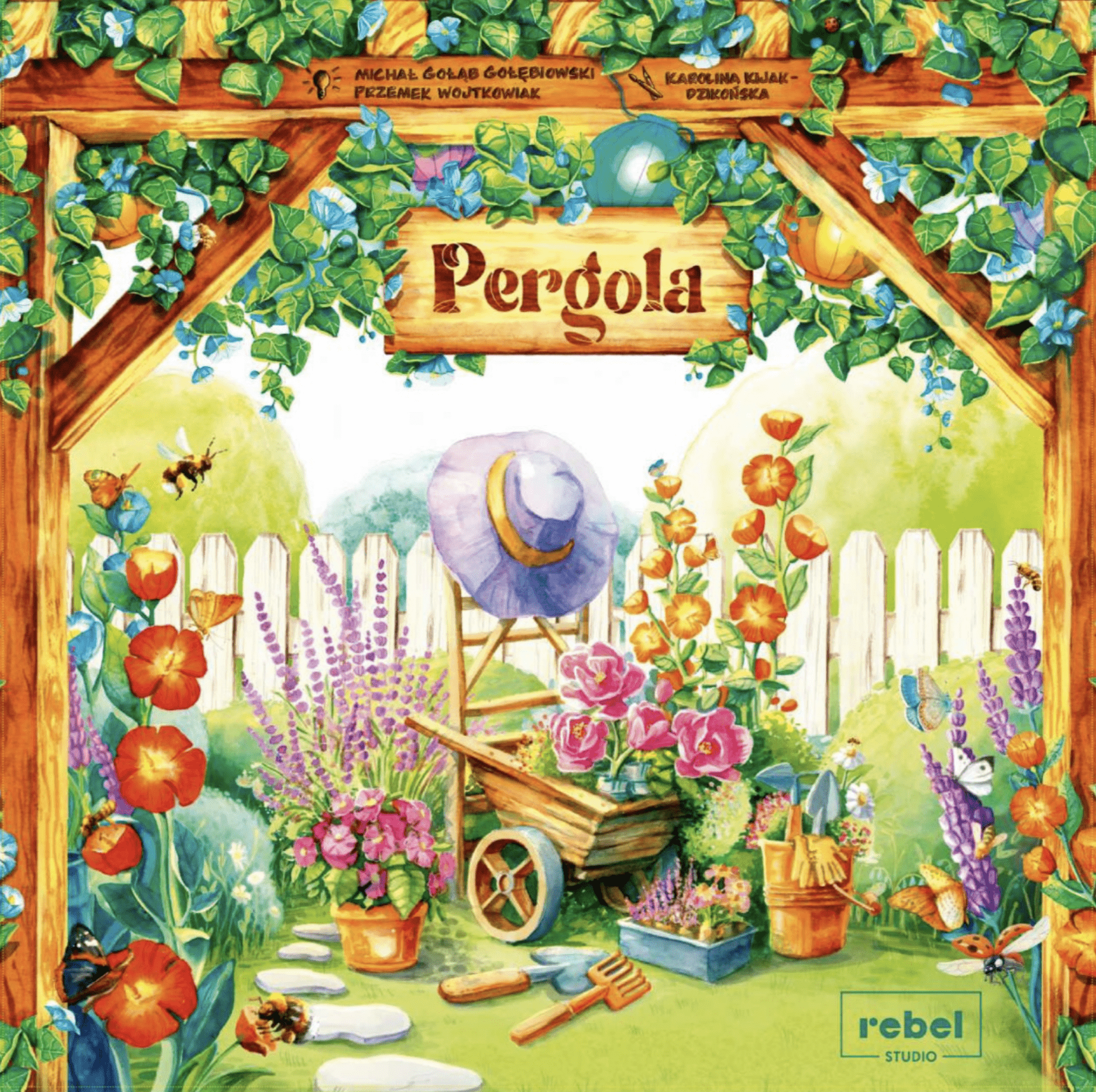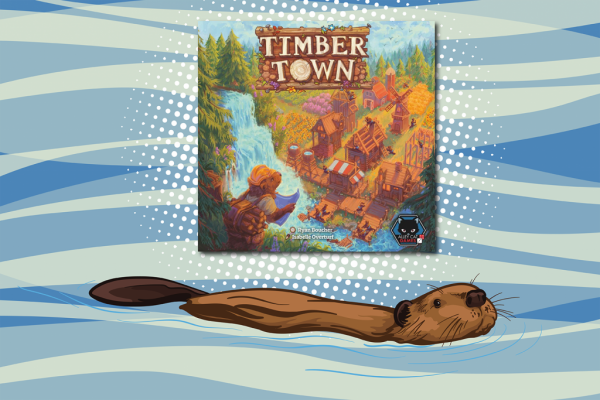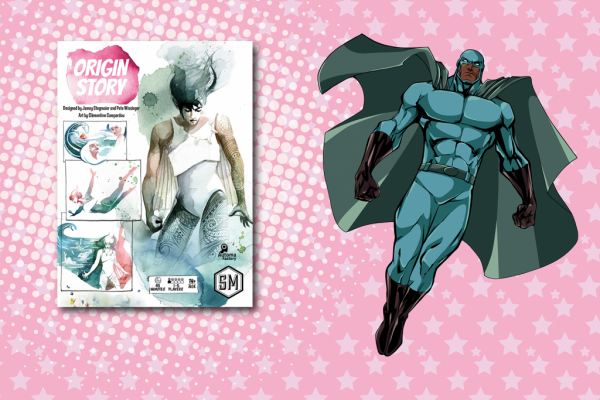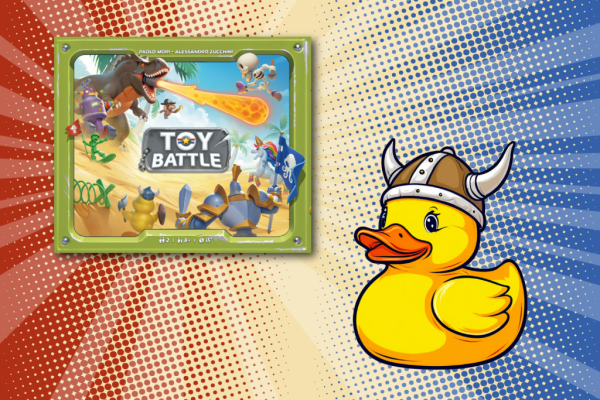Pergola Review
Advert: this game was gifted by Asmodee UK via Mason Williams PR, this has not affected our opinion.
Gardeners often fall into two categories. Those that love being outdoors, planting, pruning and generally pottering in the garden, and those that feel like it is all a bit of a chore! However, I fall firmly between the two. The thought of doing gardening and actually digging holes and weeding is a bit of a chore, but once it is done, I love the satisfaction and the feeling of being outdoors having accomplished something. I certainly fall into the low maintenance style of gardener! Why am I sharing all this? Well if you hadn’t gathered already, Pergola is all about creating a garden for insects to thrive in, and that is the board game we are reviewing!
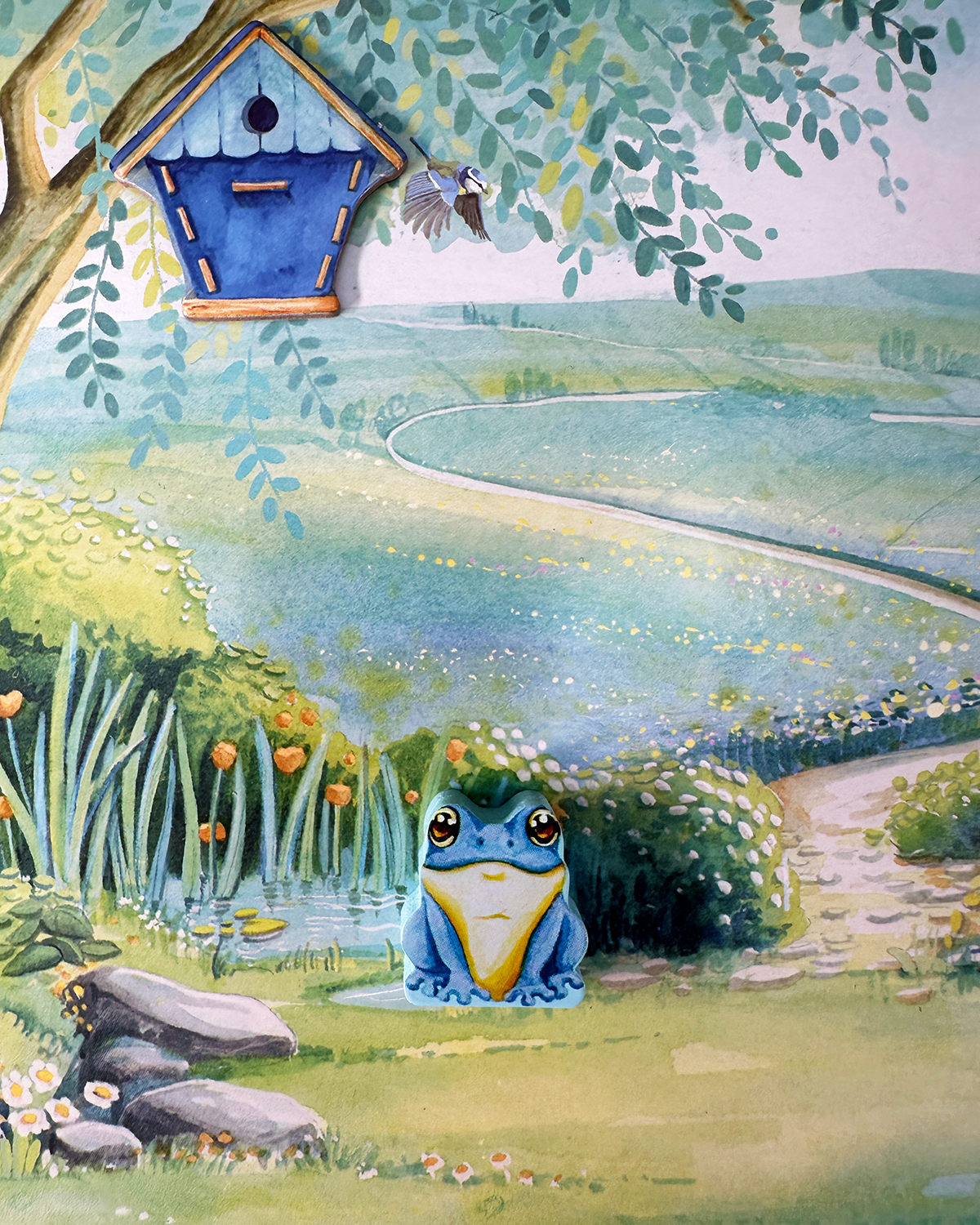
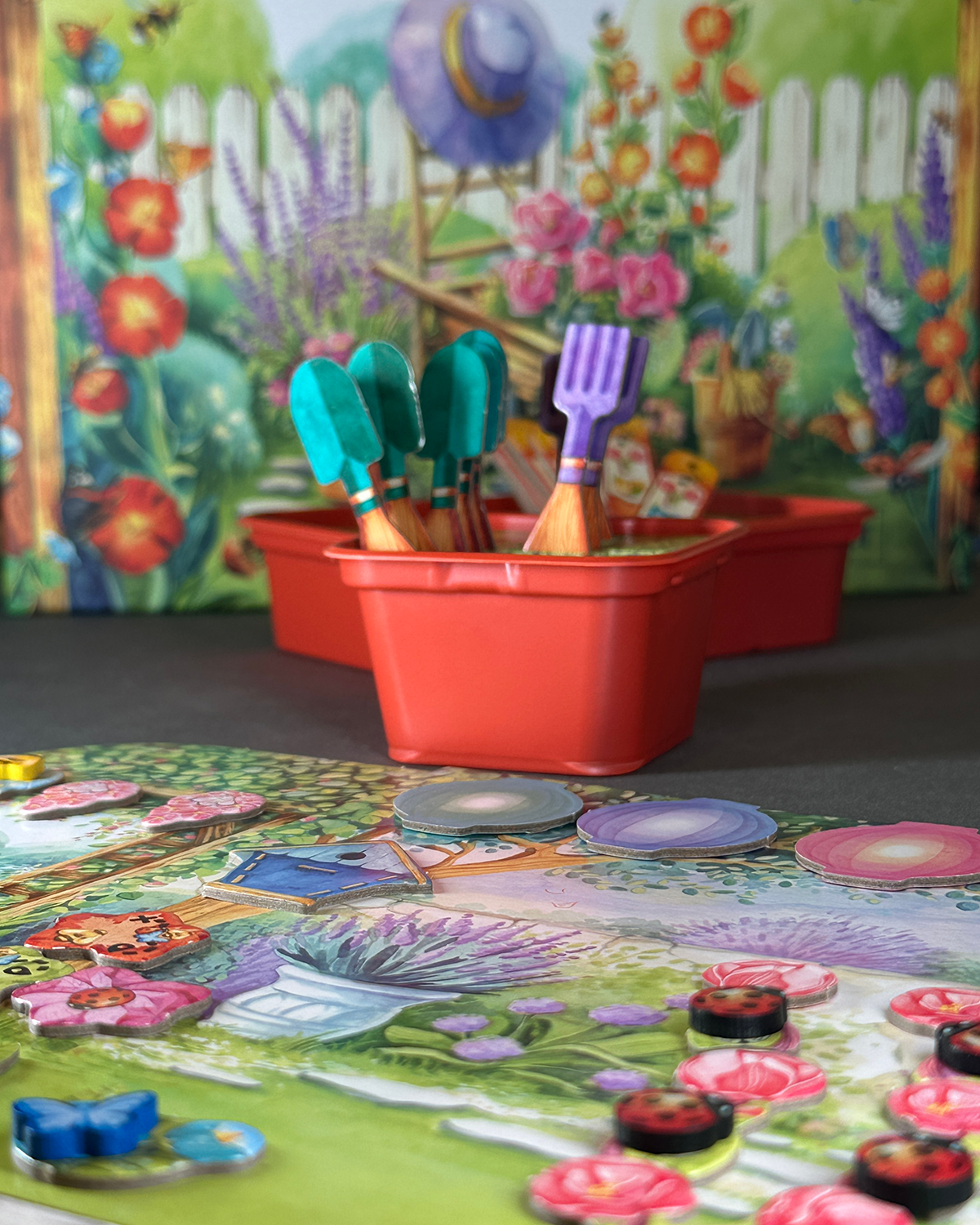
©boardgamereview.co.uk
Setup
If you’ve packed the game away correctly, set up is a doddle! Lift the component tray and board out of the box and give each player a pot, The contents of which will match their player colour. This should contain everything they need: honey pots, water tokens and a frog. Stack the dragonflies on the relevant lily pads and get the right tools for the player count ready in their pot. Place four above the drafting action tile. Finally create three stacks of leaves on the relevant board.
Give each player a three-section player board and a scoring reference board. That’s it, you are ready to play and can thank past-you for doing such an excellent job packing it away after your last play!
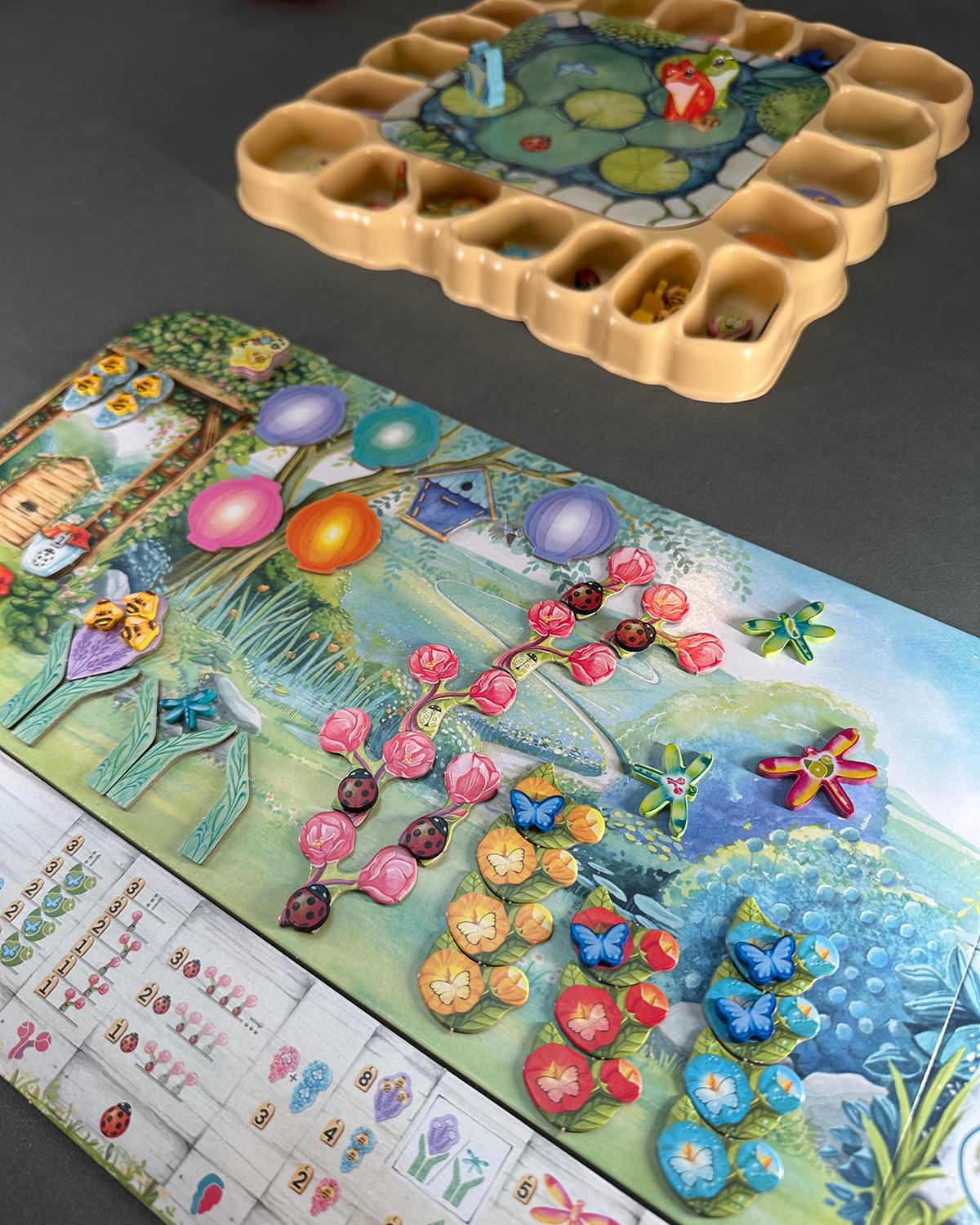
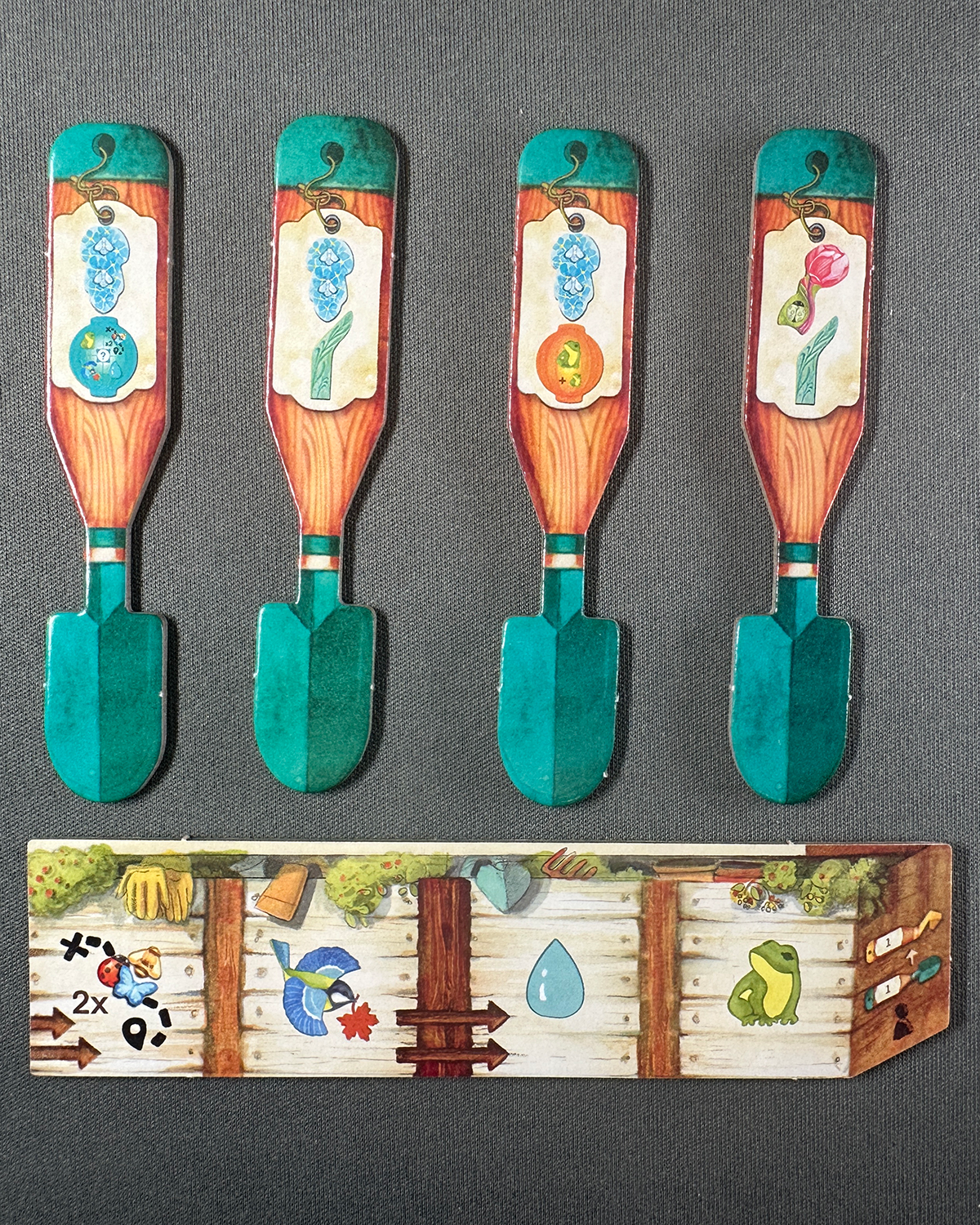
©boardgamereview.co.uk
Gameplay
Over the course of the game players will take fifteen turns. On each turn players will choose a tool and take the two tokens or benefits displayed on it. You then take the action that was associated with the tool. These actions will be to either move insects, take a leaf, take a water droplet movement, or move your frog, each of which comes with further bonuses.
Generally, you will score points in a set collection way, and as is often the way, the more you have of something the better it will score. Over the course of the game you might unlock additional scoring opportunities via honey pots and reaching the end of the water cascade board too.
Once fifteen tools have been placed in every players Tool Pot (which will mean all slots are filled), the game ends and scores can be tallied. Most points wins!
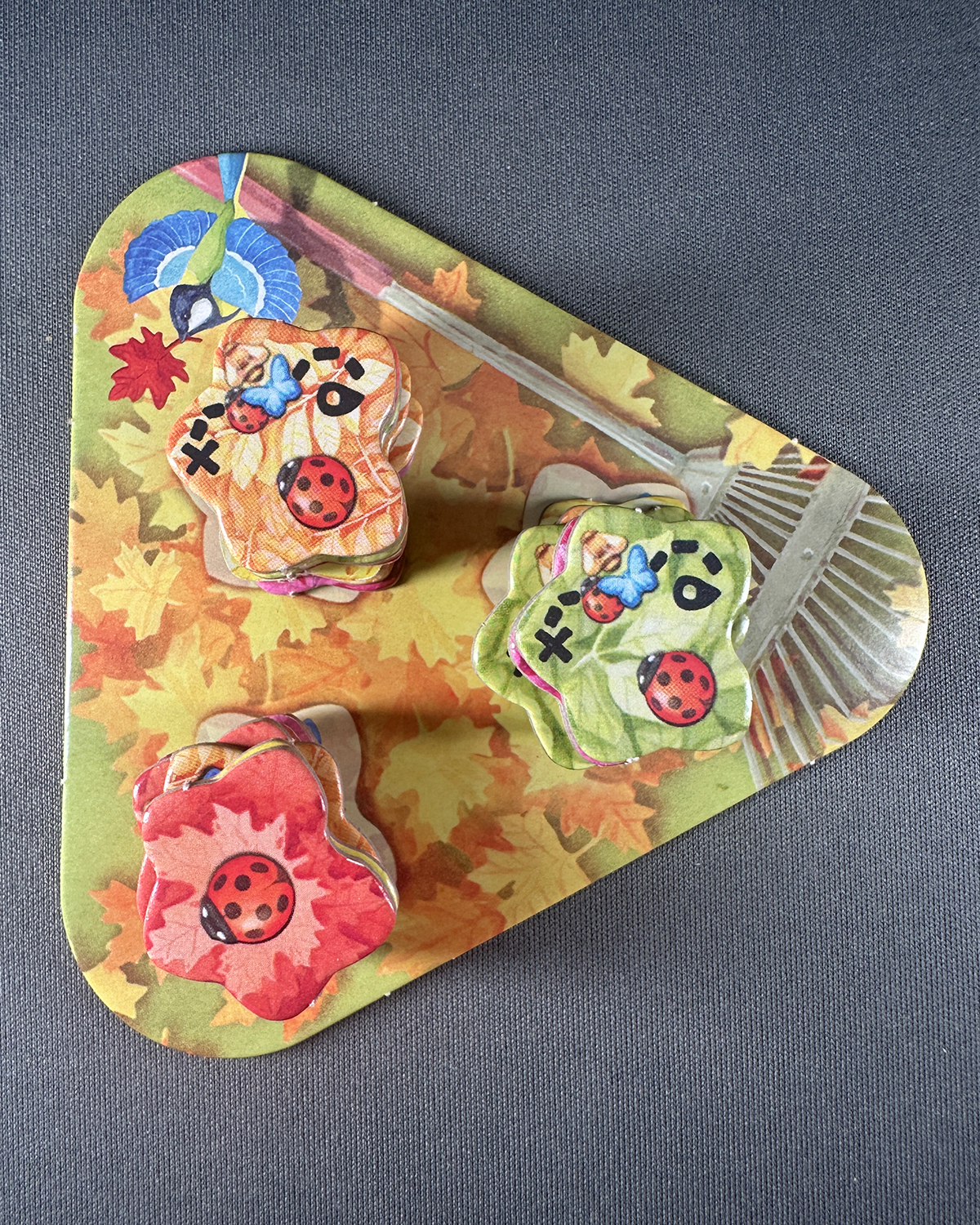
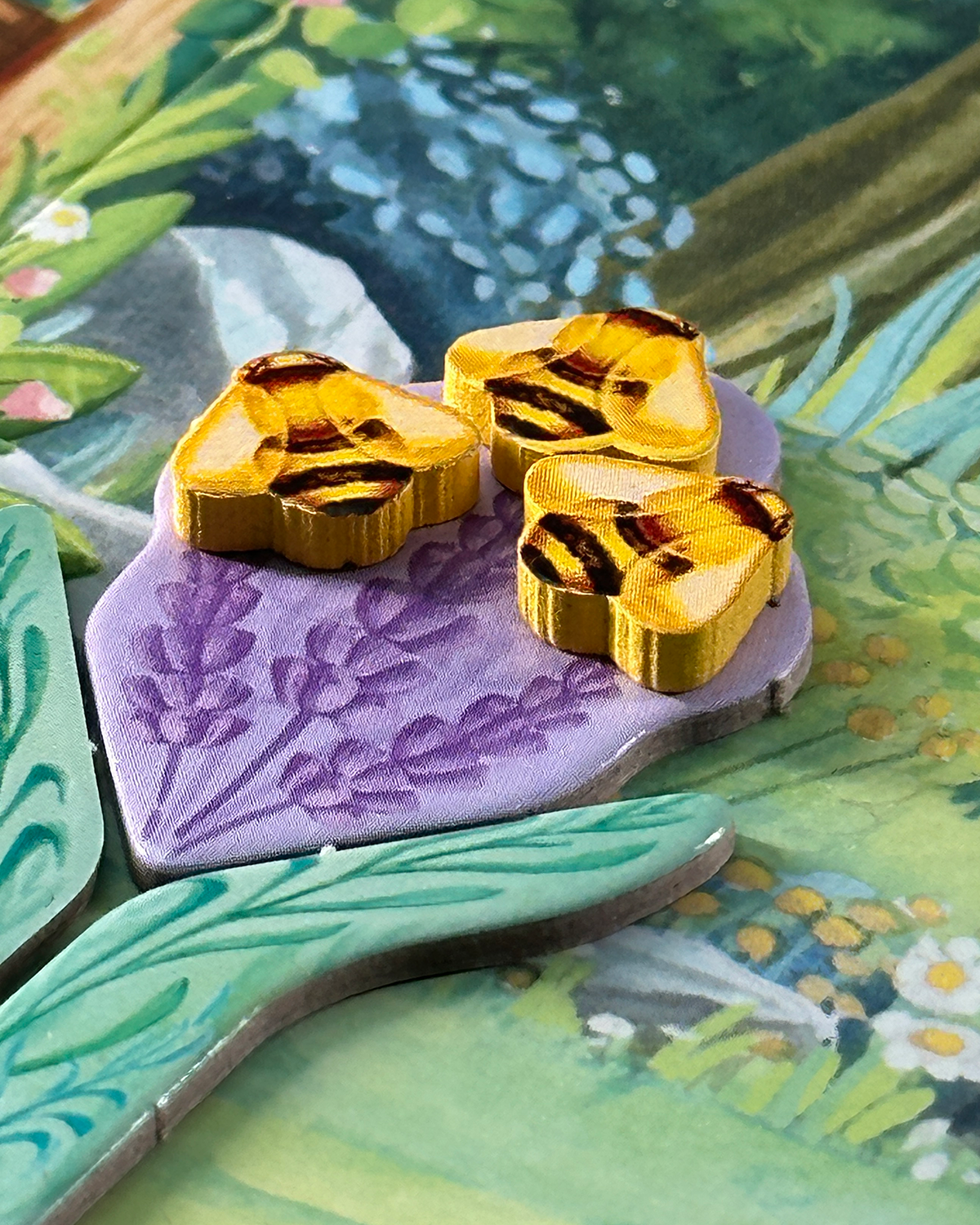
©boardgamereview.co.uk
What it’s like
Pergola is a point salad game, and by that I mean, you pretty much earn points no matter what you do. However, this can conjure up a feeling that it doesn’t really matter what you do on your turn. I’m not convinced that is the case, but I can certainly understand why people are left with that feeling playing the game. Its optimising these points that builds the strategy, but if you don’t feel that ownership, then it can feel like you are just going through the motions of the game.
I guess it is slightly compounded as Pergola is a lighter game, that borders on being relaxing to play. So while I understand it, I personally don’t get that feeling while playing the game. Some of my opponents have though, which is why I mention it. I also wonder if others had expectations of it being a bit less fluffy and a bit more thinky. Congratulations to you though for reading this review so you know what to expect before purchasing it!
Like I say, none of that bothered me and I really liked building a beautiful garden in front of me. I find the picking of the tools and associated action interesting and I like how the game keeps the market fresh with the better actions being associated with the tools that have hung around the longest.
It is also a game where you have to do a bit of everything before focussing on one thing a bit more. Dedicating to a single strategy is tricky to accomplish due to the luck of tools being available on your turn, so hedging your bets early on seems the best way of tackling this.
The game does drag a little at four as there is little planning to do as so much changes between turns. I ogle at the garden being built before me, but others might reach for their phones. Three feels like the best player count. Two player is good too, but it becomes arguably more tactical as you look to see what your opponent wants and either leave a tool you want for it to get pushed along to a better action or snaffle it early if it is valuable to both of you.
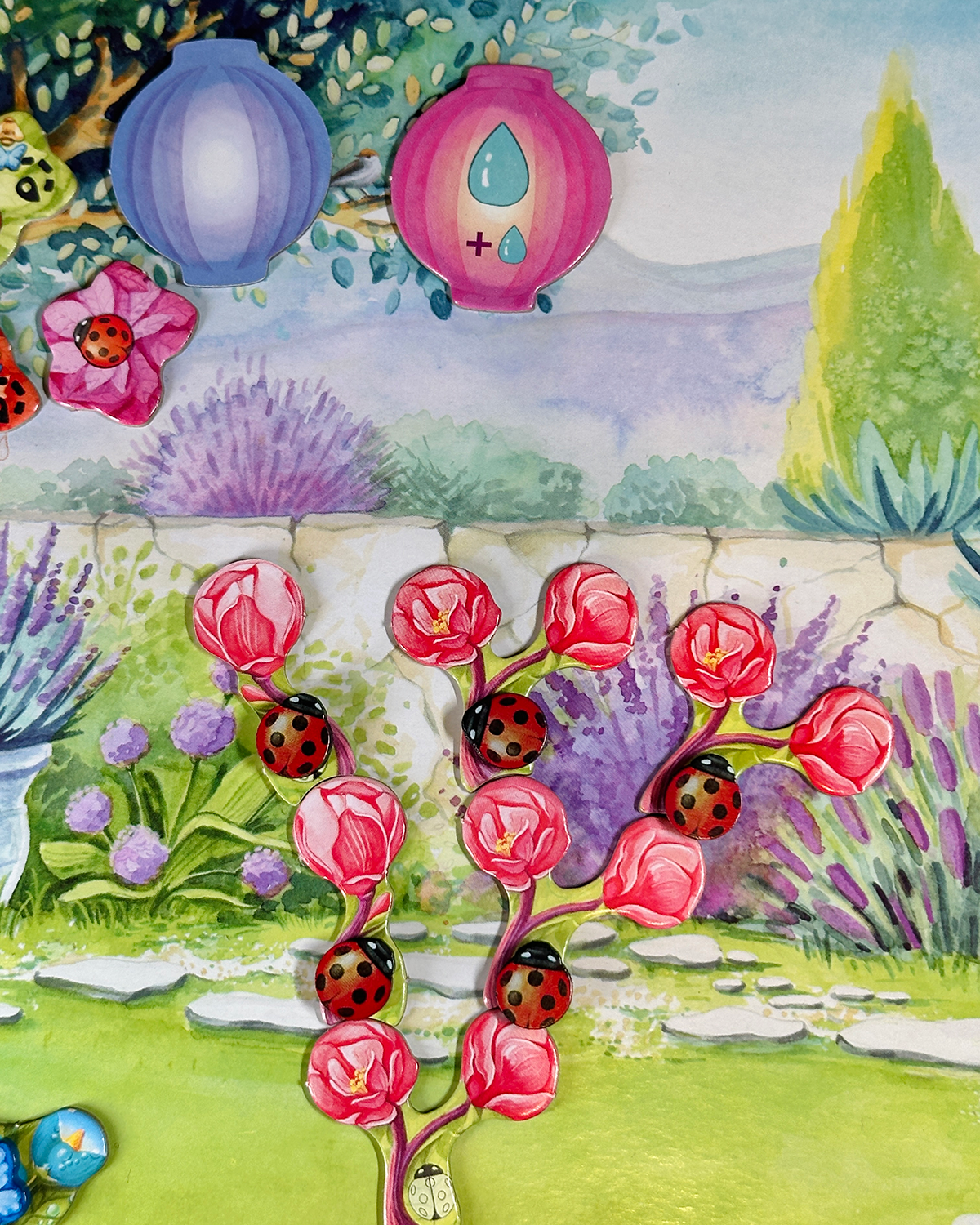
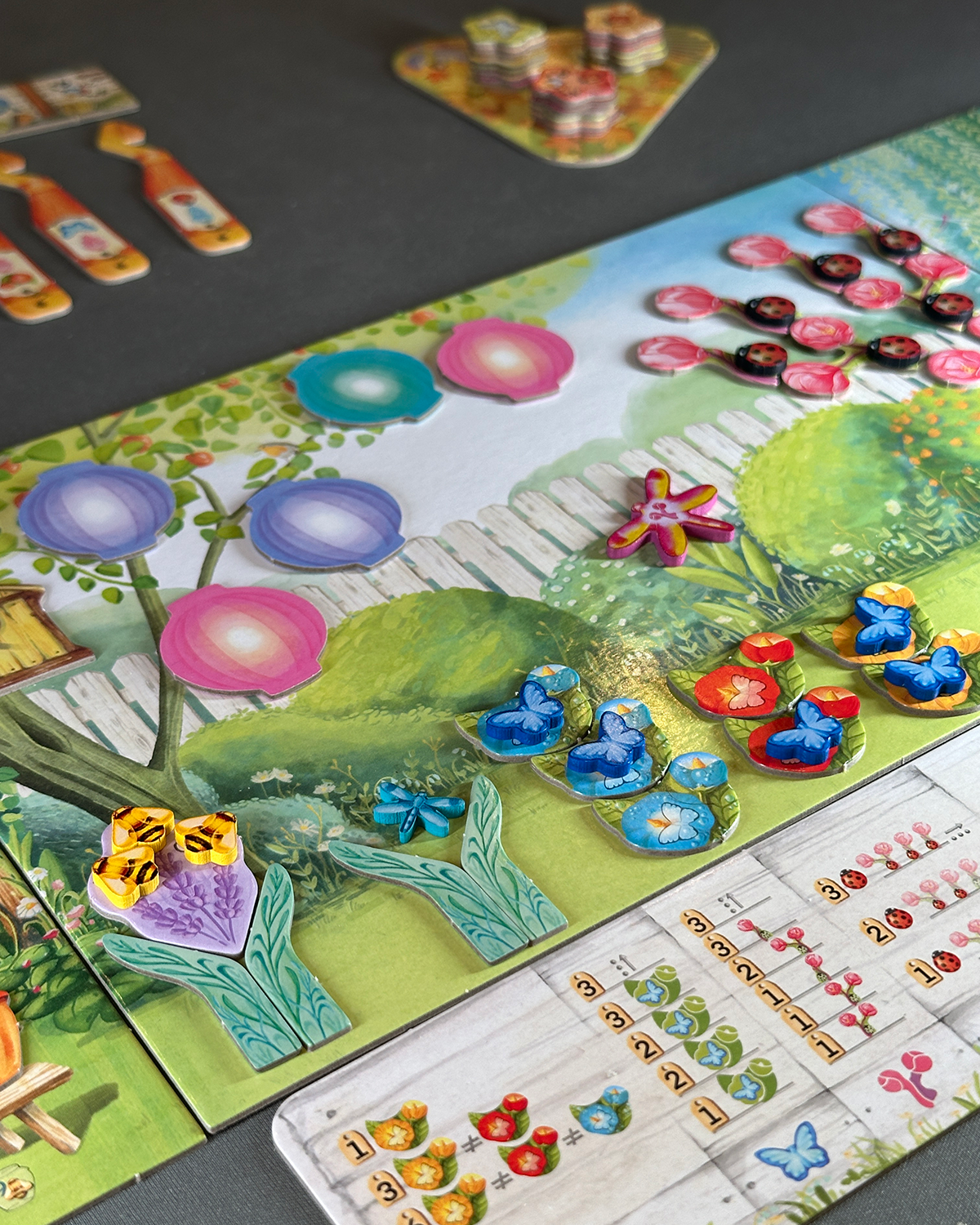
©boardgamereview.co.uk
Table Presence
Well I think this game is very pretty indeed. Not just the player boards and the tokens that get bestowed upon them, but the storage of those components is mighty fine too. The freedom of placing your flowers anywhere has vexed as many people as it has delighted. I like thinking about the position of the flowers as it gives me ownership of how I want my garden to look.
The tool holders seem brilliant at first, but the tools within do flop about a bit. Those with sausage fingers may also find all the components to be a bit fiddly.
Perhaps the biggest gripe I have had is the names of the flowers. Sure there is a buttercup clematis, but I think locally a buttercup would more likely be associated with a yellow flower found amongst the grass, rather than hanging down from a pergola! Similarly the magnolia tree is more akin to a peony or rose. For a game aimed at those with green fingers these details seem to matter!
The scorepad is also the work of a lunatic, the theory is that each player gets their own sheet to score. But if you were to do that, you would only get about twelve plays at four player before you ran out! I’m not a fan and just think a more traditional score pad should’ve been used.
The rulebook was good, from what I remember, and got me up and playing in no time. I like the scoring aids for each player that slots by their board too as this is really helpful when teaching the different scoring of all the elements.
Overall, this really does look great.
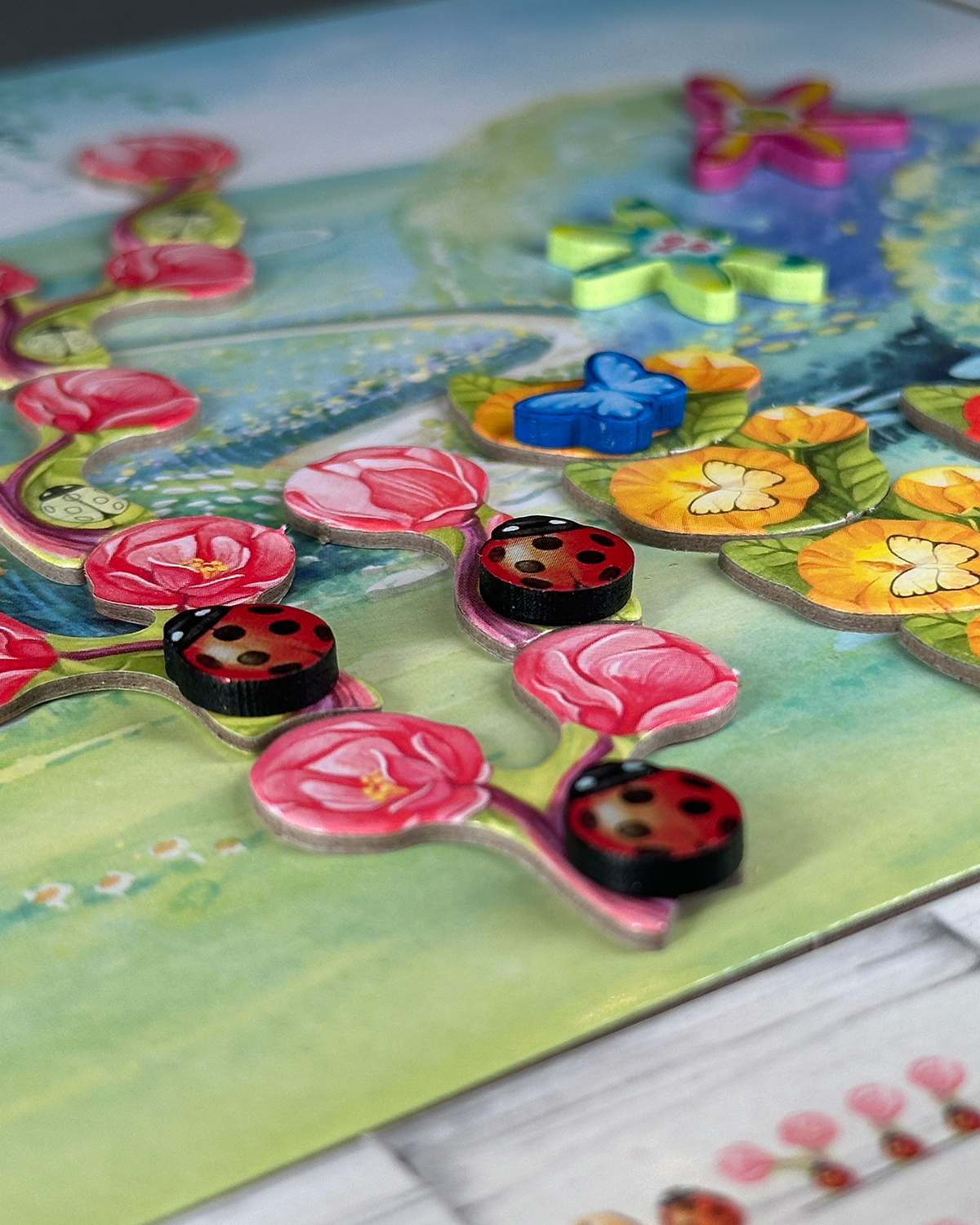
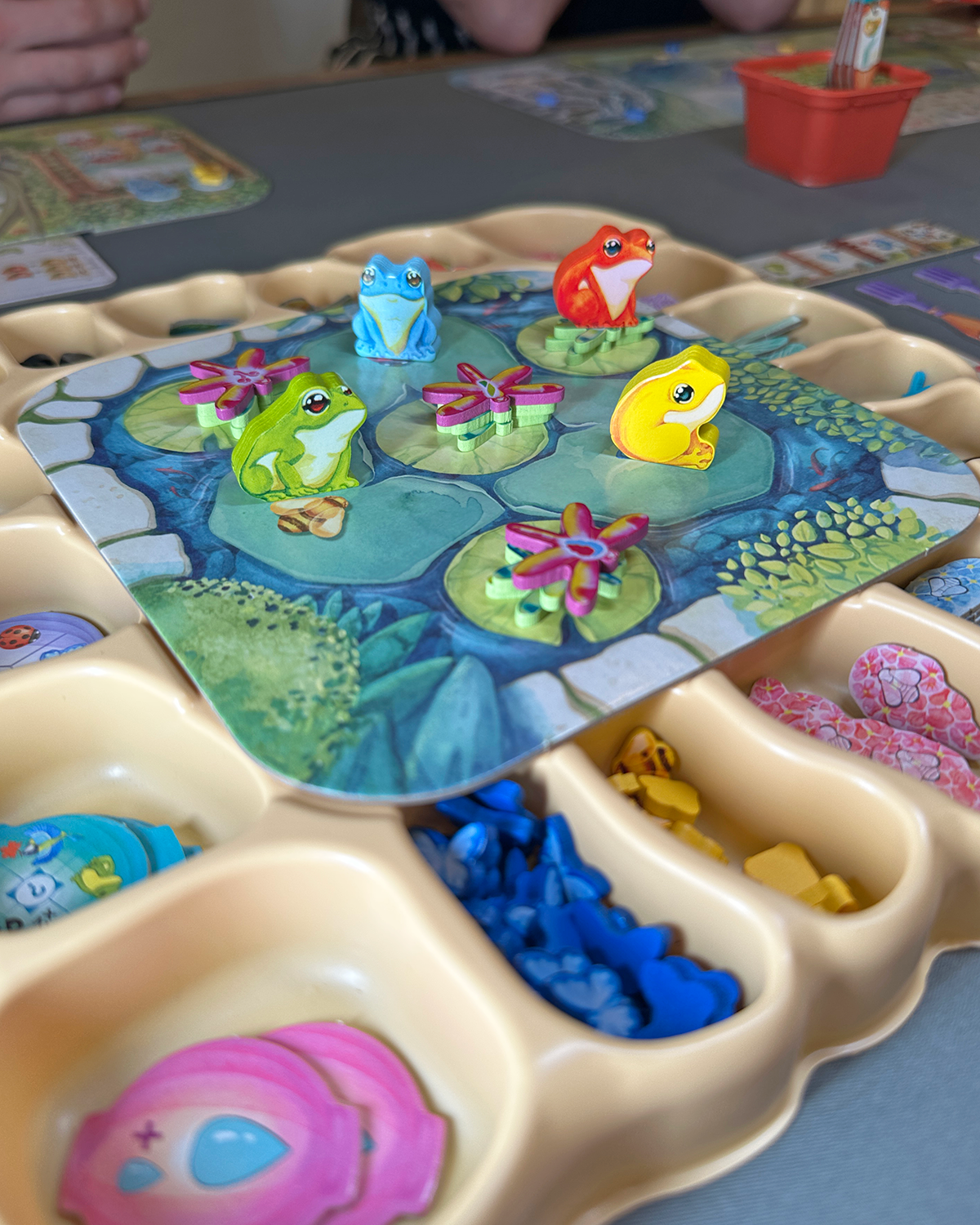
©boardgamereview.co.uk
Final thoughts on Pergola
I’m not a fan of describing board games as cozy, but if ever a game could be described as such, Pergola is definitely a front-runner. It certainly has a relaxed feel to it. Although there may be some tension if a tool comes out you want when it isn’t your go, generally there will be something useful for you to obtain on your turn.
That feeling of everything being okay will underwhelm some people and I have certainly encountered players with that opinion. As a beautiful, lighter-weight game I have equally found people who have fallen in love with it. Hopefully, if you have gotten to this point of the review, you already know which of these viewpoints you will adopt.
If you are looking for a new chill out game for lazy weekends or evenings when you need to soothe the brain rather than give it a jolly good work out, Pergola is certainly worthy of your consideration!
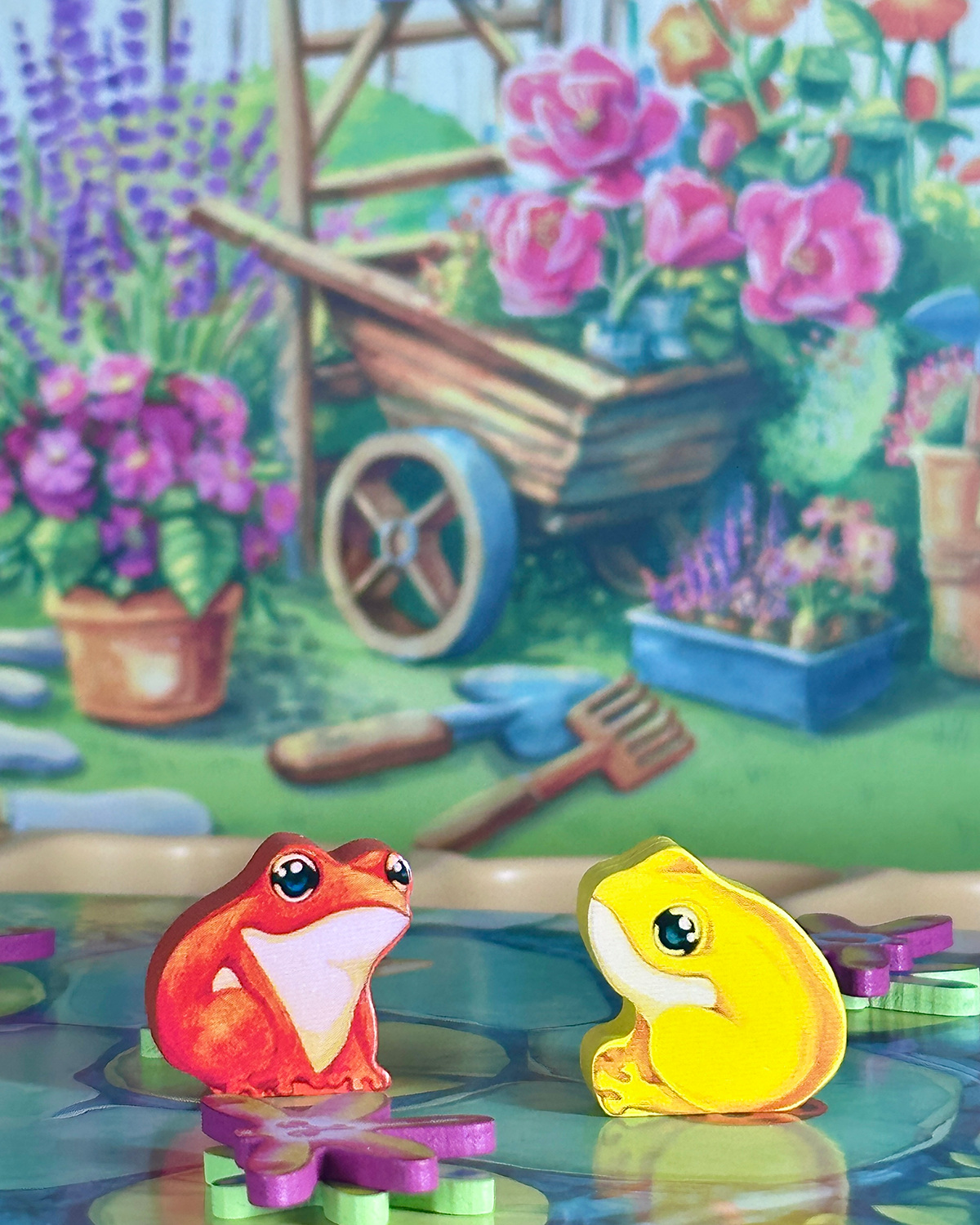
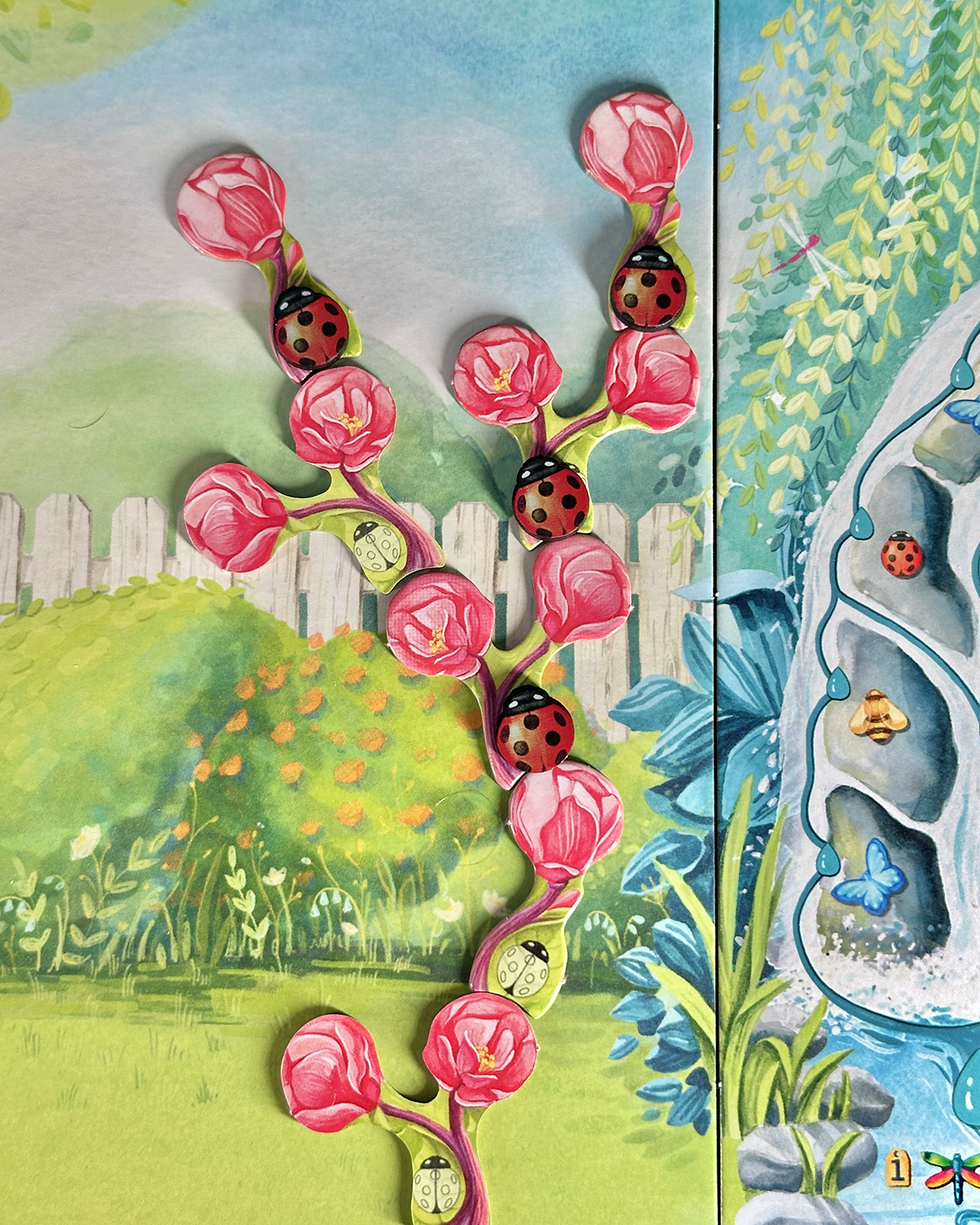
©boardgamereview.co.uk
Key Facts
Number of players: 1 to 4
Board Game Review Recommended Age: 10+
Publisher’s Recommended Age: 10+
Playing Time: 60 minutes
Setting Up and Take Down Time: 4 minutes
Designers: Michał Gołąb Gołębiowski, and Przemek Wojtkowiak
Publisher: Rebel Studio EU
RRP: £37.99
Summary
Pergola is an absolutely beautiful production that would’ve probably benefitted from a bit more strategy. That said, it is a lovely relaxing game to play.
-
Artwork and Components
-
Complexity
-
Instructions
-
Interaction
-
Value for Money
Overall
Pros
- Pretty garden theme
- Point salad
- Great storage solution
- Cute components
Cons
- Components can be a little fiddly
- Limited strategy
- Lack of planning on other’s turns
- Scorepad
Need more games?
If you already own Pergola and enjoy it, or are looking for other inspiration, you might also like these similar games:
- Meadow
- Vivarium
- Cascadia
- Bonsai
Buy Pergola
If you want to buy Pergola after reading our review click on one of our affiliate links below (note there has been no affiliate links until this point)
Reviewer’s Note
For clarity: we don’t get paid for our reviews. However, we were kindly gifted this game by Asmodee UK via Mason Williams PR. We have tried not to let this affect our review in any way.
We may however earn a tincy wincy commission if you buy a game having clicked one of our affiliate links like the one above… this hopefully gives us a bit of pocket money towards hosting costs and new games to review!
As an Amazon Associate I earn from qualifying purchases.
We also are an affiliate of Board Game Prices, a price comparison website for Board Games.
These affiliate advertising programs are designed to provide a means for sites to earn advertising fees by advertising and linking to their websites.

